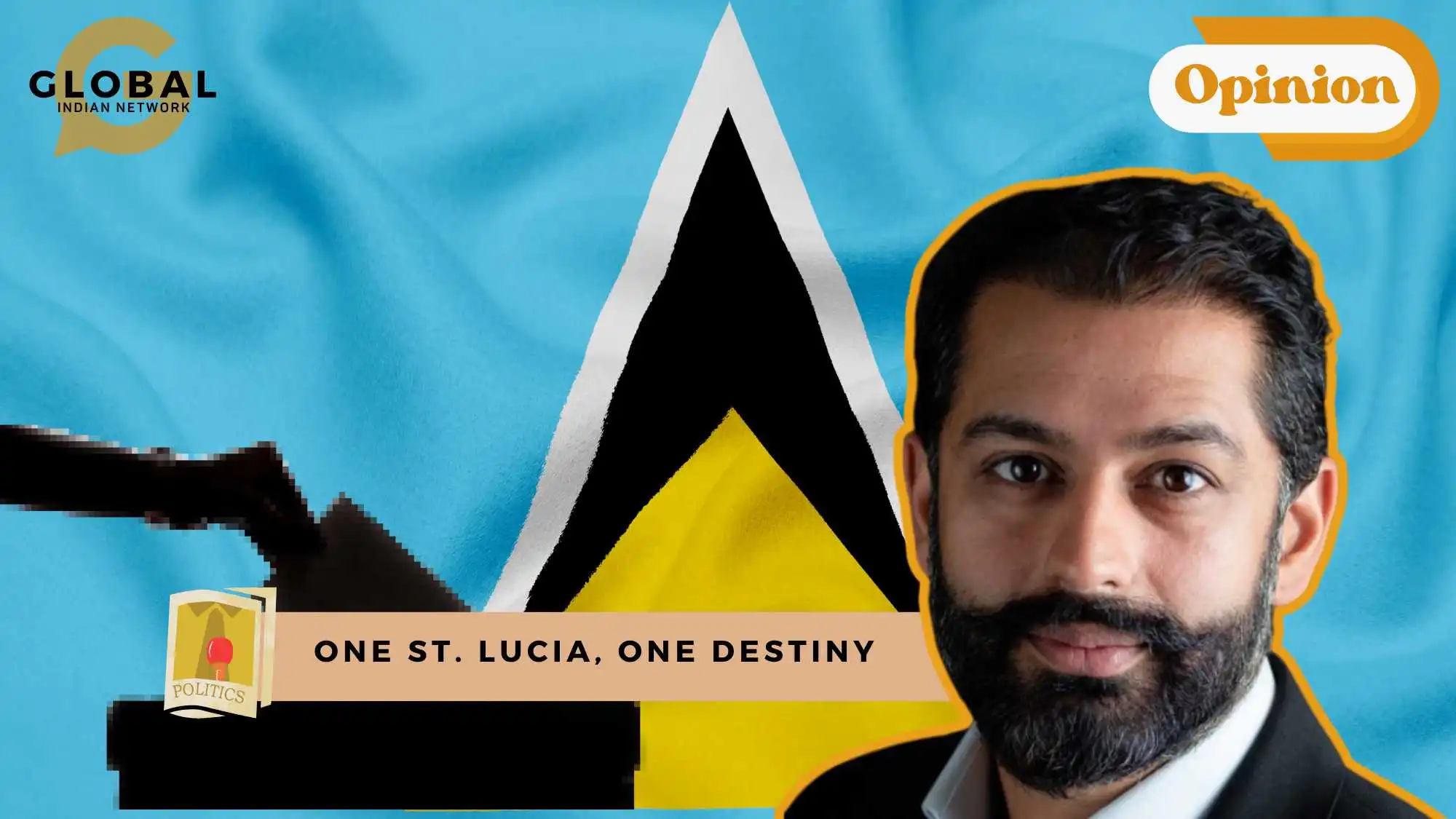The political landscape of St. Lucia finds itself at a crossroads, where the very unity that has defined this island for generations could be overshadowed by emerging divisions. Leading figures such as former Prime Minister Allen Chastanet and Deputy Head of the Opposition, Guy Joseph—who himself has Indian roots—have introduced a style of politics that raises important questions about identity, belonging, and the future direction of the nation.
For years, St. Lucians have voted with a sense of loyalty to their parties and the leadership they trusted. But this election feels different. The conversations are evolving, no longer centered solely on policy, but increasingly focused on identity. Who belongs where? Who represents whom? And, most importantly, is every community truly included in St. Lucia’s future?

This growing focus on identity rather than policy, presents a challenge. It risks dividing the nation into factions of “us vs. them,” a shift that undermines the shared destiny St. Lucia has long stood for and threatens to unravel its core values of unity and inclusivity.
One St. Lucia, one destiny.
Under the leadership of Prime Minister Philippe J. Pierre, there is a palpable effort to bridge gaps and work with all communities to foster economic growth that benefits everyone. There is still much to be done, especially in addressing issues of class and social mobility. Not every minister has yet shown the same level of commitment to creating real change, but the steps toward a more inclusive future are evident. St. Lucia must remain a land of opportunity for all its people, not just those with historical or political leverage.
Prime Minister Pierre’s long-term vision seems to align with the heart of St. Lucia’s strength—its unity. This nation’s true soul is found in its ability to unite its diverse communities, not in fostering divisions. The dangers of allowing identity politics to take hold are clear. Once communities begin to feel alienated, reversing the damage becomes nearly impossible. St. Lucia cannot afford to fall into that trap.

The beauty of St. Lucia lies in its ability to thrive as a multicultural nation—diverse, yet bound by a common purpose. Now more than ever, leadership must rise above the immediate pressures of electoral politics. The message must be clear: St. Lucia belongs to everyone. The economy, policies, and governance must reflect that inclusive reality.
This election is more than just a political contest; it is a defining moment. It will determine whether St. Lucia chooses the path of unity over division, shared progress over isolated success. If the government fails to act decisively, the cracks in this multicultural success story could grow into fractures too deep to heal.
The choice is clear: the future of St. Lucia depends on it. This election isn’t about the parties; it’s about the people. I urge the people of St. Lucia to stay true to their moral compass. You deserve accountability, not empty promises. You deserve opportunities, not political platitudes. Above all, you deserve a life that reflects the very best of what St. Lucia has to offer.
The world is watching. Let us show them what true unity looks like.

Have an opinion on this matter? Let us know your thoughts in the comment section below. If you want us to feature your opinion piece, send it to larra@globalindiannetwork.com.









